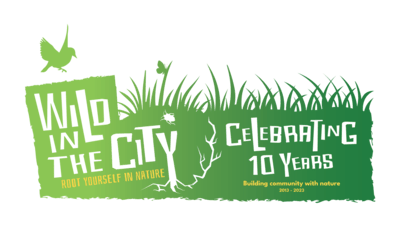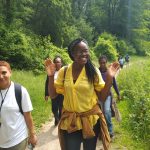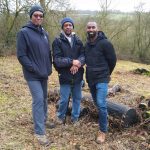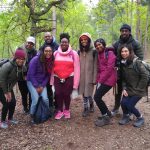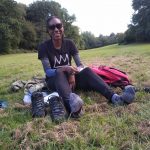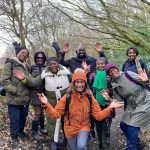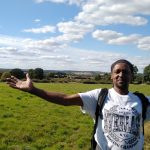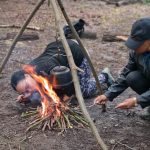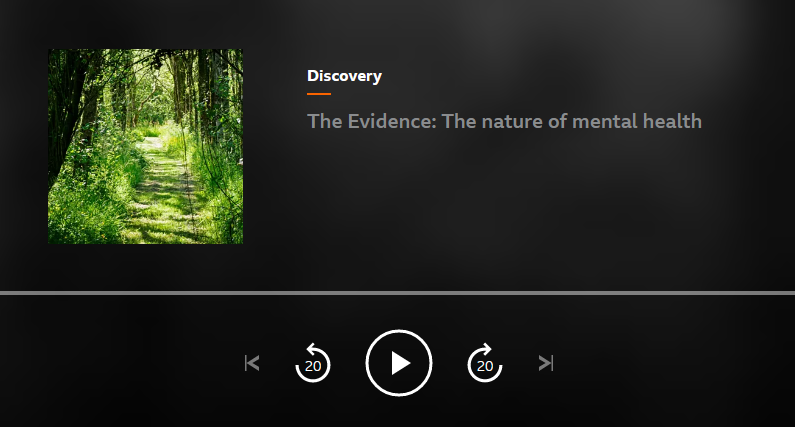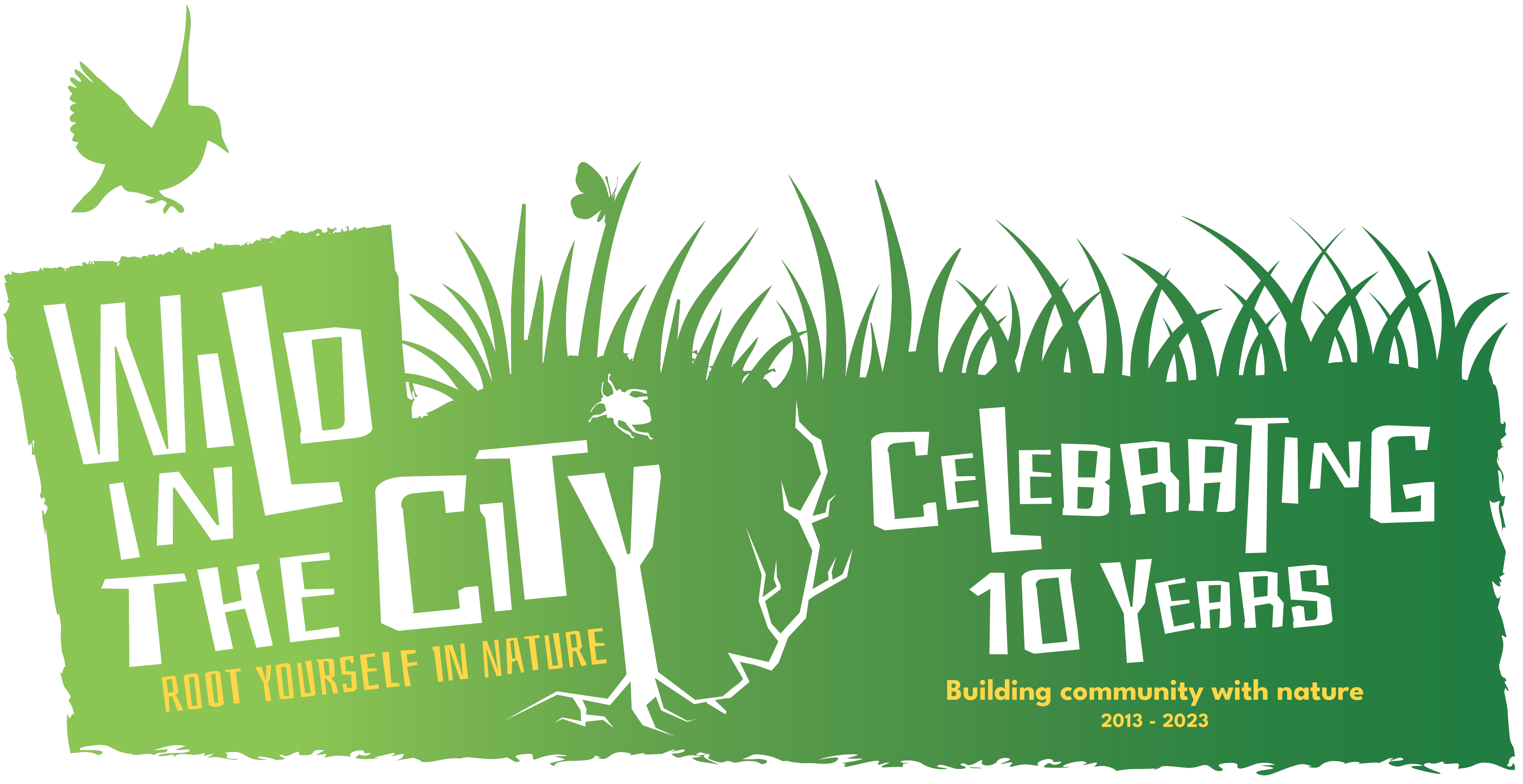
Celebrating our 10 year anniversary
We’re so excited to be in our 10th year, building community with nature, 2013 – 2023!
What an incredible journey to get this far. We’ve brought together many amazing people in that time and nature has graced us with so many wonderful experiences.
In the last decade, we’ve made the woods, heathland, grassland, wetland, farmland, and riverside our home for nature encounters and immersive learning. We have hiked hundreds of miles of pathways and trails. We’ve met hundreds of species, learning how they live and interconnect. We’ve shared thousands of hours around the fire, learning skills, remembering the ancestors, sharing our stories of relationship with nature – here and back home.
We’ve communed with nature and kept alive ancestral skills through a range of natural history and woodland living skills workshops on charcoal making, Tree Identification, wild cooking, animal track and sign, bird watching, bat walks, glow worm walks, foraging, cordage, fire by friction, basketry, spoon carving, natural navigation, and much more.
What does being part of Wild in the City mean to our members?
Wild in the City is a chance to recognise that living and having grown up in a city like London doesn’t mean that I have to be disconnected from nature. Or that I have to wait til I travel to find those moments where I feel connected.
Being with other people of colour means being a very specific version of free. It’s a comfortability and it’s understanding. It feels like a luxury a lot of the time and I never take it for granted.
Tonee, hiker
How we started
In 2013, Wild in the City was founded to support urban residents in learning about the natural world and making nature meaningful within our everyday lives. We aimed to work with everyone though, sadly, not everyone felt comfortable with Black leadership. Our work became focused on supporting people of colour in finding our place in the UK countryside, training people of colour as leaders in nature, and exploring the opposition to Black presence in environmental spaces.
This was a milestone development. At the time, there were only a handful of organisations led by and for people of colour in the outdoor/environmental sector in the UK. Ten years on, we’re proud to share our achievements, despite a history of underfunding, to become a national voice for Black and Asian perspectives and an influential provider of innovative programmes bringing nature into our everyday lives.
Where we’ve been
Innovating
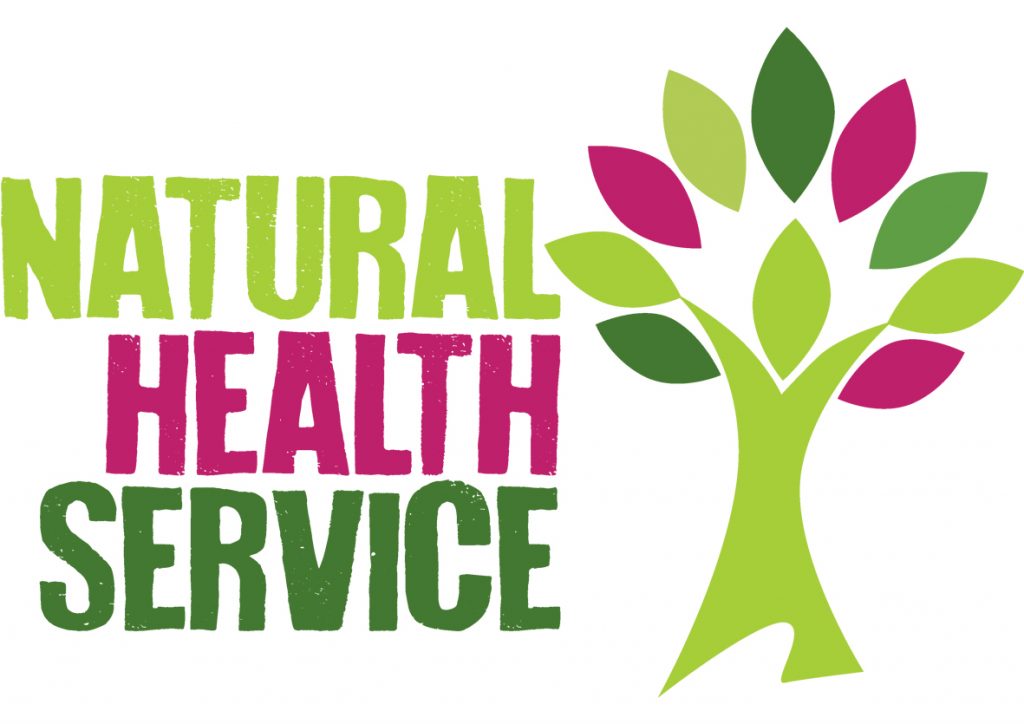
Our past projects have included pioneering London’s first Natural Health Service, bringing together a consortium of organisations to improve emotional, physical and social health, through the power of time in nature and to relieve pressure on the NHS by addressing both preventative and reactive healthcare and social pressures.
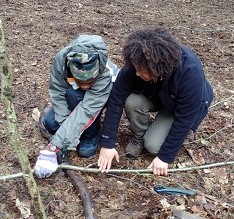
Our Wildcraft Club nurtured young people 3+ to explore their natural neighbours, we’ve worked with schools to bring the stone age to life in the woods learning traditional skills.
We held our inaugural Wild in the City Festival, 3 days and 2 nights of woodland camping, the first gathering of its kind, celebrating people of colour in nature and challenging myths.
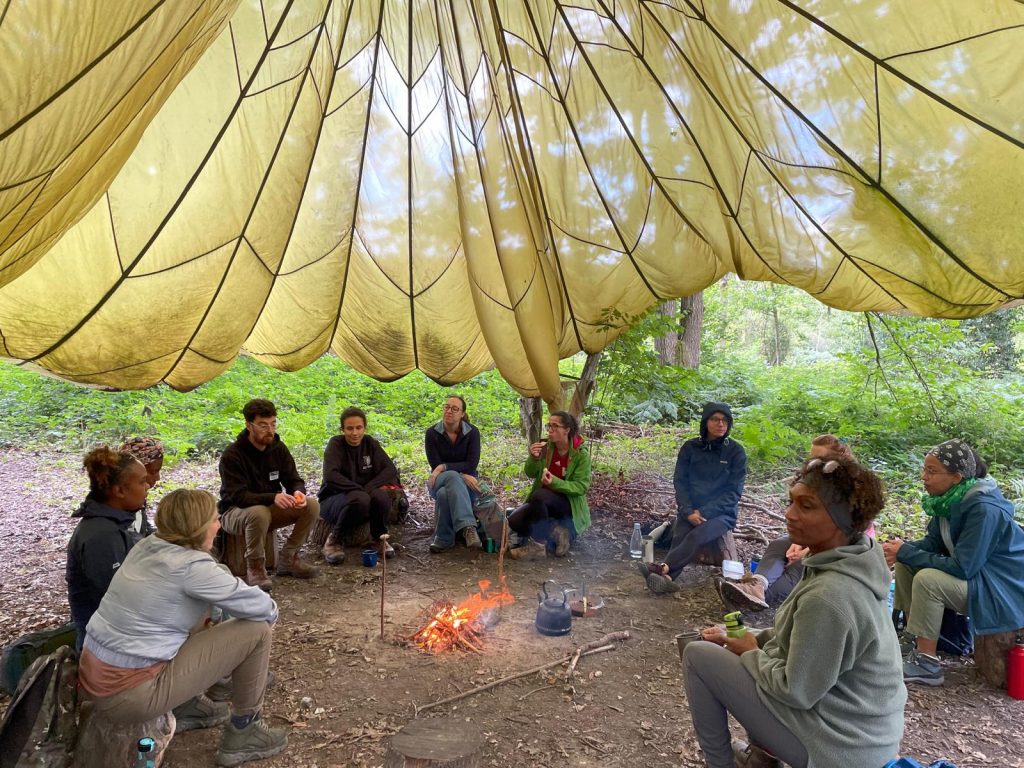
In responding to issues of race and racism in the environmental field, we have commtitted not to bus ‘black bums on seats’, rather we support organisations to understand why they might not attract more diverse participation through our Reflections on Race programme, and use the healing setting of nature to lead other sectors on a similiar journey of talking about racism within their institutions. We have supported insitutions from environmental, archaeology and health sectors in contemplating race and racism.
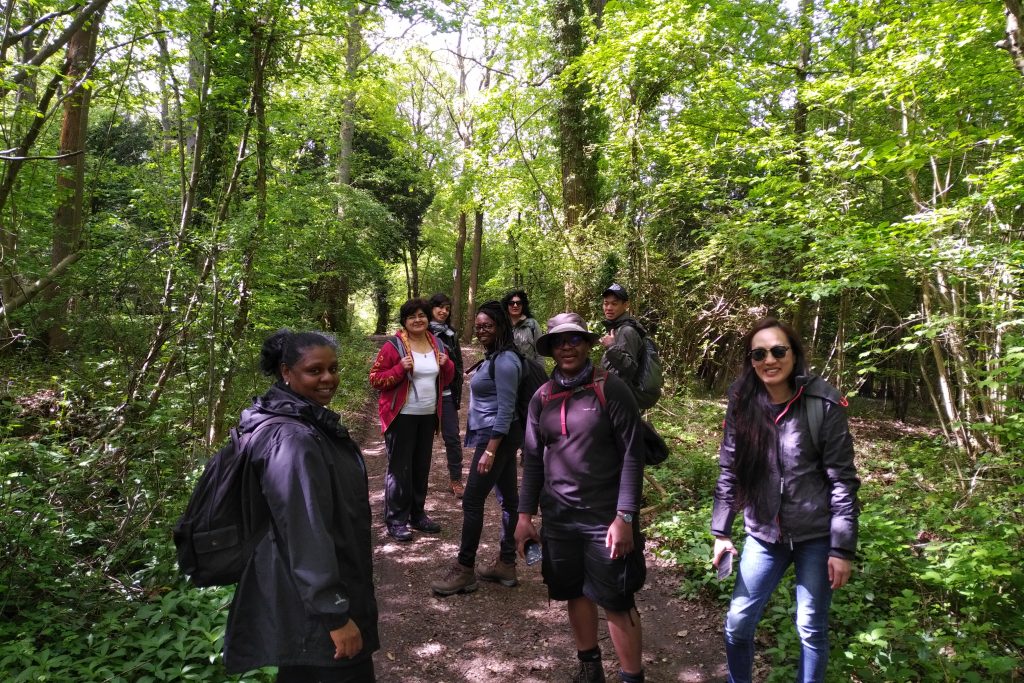
We’re so proud of our Nature Connectors programme, helping people discover nature on their own terms – a deeply initmate experience immersing into nature and community, reflecting on our ancestors relationship with nature as well as our own, whilst learning traditional skills for using nature as a sustainable resource for meeting our needs, learning about our local habitats and the wildlife that lives there. The stories shared around the fire are testament to how impactful the experience is for those who attend.
Improving habitats
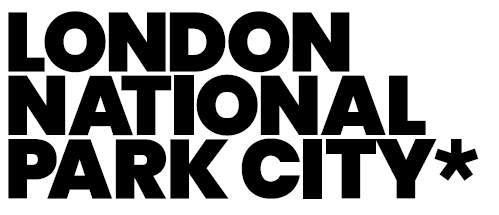
We’ve supported initiatives to improve habitats, increase connection with nature and encourage people to see the city differently. We helped to bring the London National Park City from idea to fruition, through our representation on the National Park City Foundation’s board.
We are a member of the Management Committee for Natural England’s The Nature Recovery Network is part of the government’s 25 year Environmental Plan to increase biodoversity, mitigate climate change and enhance human wellbeing. We helped to launch the Nature Recovery Network.
At South London Downs NNR, we're working with partners to recover natural sites and create connected places for both people and nature.
— Natural England (@NaturalEngland) February 26, 2021
Together, we will deliver the #NatureRecovery Network.
Join our partnership: https://t.co/H0SlT6mZdw#TogetherForNature #TogetherForOurPlanet pic.twitter.com/3wKY2VW5Vg
We also supported Natural England’s launch of London’s 3rd and newest National Nature Reserve, South London Downs Nature Reserve.
It is remarkable what WitC has achieved over the years with minimum resources and despite the many structural challenges that have been faced and overcome and that still persist today. We have a remarkable staff team who are enthusiastic, committed and dedicated to providing the best. Our team of Nature Guides build resilient meaningful relationships with participants, which mean that our participants return time and time again because of the value it brings to them to be part of a WitC event. I am proud to contribute and to be part of an organisation that is values-driven and that works hard to make a positive contribution to the community it aims to serve.
Jacqueline Jackson, Director of Operations
Research and thought leadership
Black perspectives
Wild in the City has been influential in giving voice to Black and Asian perspectives about our relationship with nature and engagement within the environmental field. We have influenced public and academic framing and discussion about people of colour in nature, environmental justice, and the benefits of nature to our health and well-being.
In 2018, we were invited to Number 10 to advise the Prime Minister’s Special Advisor on the environment in engaging urban residents with nature.
We were the first to conduct in-depth ethnographic research exploring our relationship with nature. Prior to this, the dominant narrative in the environmental field was that we weren’t interested in nature or that it wasn’t in our culture to engage with nature. We disseminated research findings in a groundbreaking article, Black Absence in Green Spaces for The Ecologist in October 2019, which has been widely influential in understanding the issue of access and engagement from Black perspectives.
The research was presented in 2019 as a paper at the Association of Social Anthropologists conference Black Presence in Green Spaces: an ethnography of overt and covert contestation of belonging in natural settings in the UK and presented at the conference Belonging and un-belonging in the English Countryside convened by Professor Paul Gilroy.
If you watch the interview, Dwayne Fields asks Beth Collier why many BAME people believe the countryside to be a ‘white space’. I urge you to watch the episode if you’re unsure why people are saying this. pic.twitter.com/KcSH6EZw1M
— clara (@chapsantteok) June 29, 2020
We featured in the first BBC Countryfile episode to discuss racism, people of colour and access to the countryside. The episode was strongly influenced by our work and we provided behind-the-scenes consultancy informed by our ethnographic research. The episode was broadcast on 28 June 2020.
In 2021, Wild in the City convened a panel at the Royal Anthropological Institute, Anthropology and Conservation Conference, ‘Producing a Black Anthropology of the Conservation Field: The experiences of BIPOC ethnographers conducting research within white-dominated conservation frames.’ Our Director, Beth Collier presented a paper: ‘White Attitudes Towards Black Presence in Green Spaces – overt and shadow expressions of colonial mediation of nature relationships, a version of which was later published by Springer, as a chapter in Whose Green City?, a volume of work exploring environmental justice in northern Europe. The chapter is an auto-ethnography examining the White Attitudes to Black Presence in Green Spaces encountered in leading a Black organisation and in conducting ethnographic research. It is a unique and powerful turning of the lens to examine the attitudes and behaviour of white people as a barrier to Black presence in nature. In April 2021, Beth gave a (virtual) lecture at the University of Maryland on Nature, Race and Relational Trauma.
Environmental racism
We have raised awareness of environmental racism, initiating the international group of Black environmental leaders in producing the Statement on Racism in the Environmental field. Our articles commissioned by Runnymede Trust, The Race factor in accessing green space and Nesta, Detraumatising the City, document the damaging impact of city stressors and how people of colour are disproportionately affected.
Episodes of our Black Nature Narratives podcast are on the curriculum of several U.S. Universities.
Nature and health
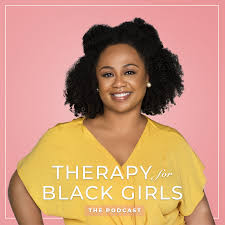
In September 2020, Beth Joined Dr Joy Harden Bradford for an episode of Therapy for Black Girls, exploring our relationship with nature and the importance of connection for our wellbeing.
In May 2022 Beth featured in BBC The Evidence; Nature in Mind discussing Nature’s benefit to our mental health.
Where we are now
Community and Oral tradition
Our community is what we’re all about. We’ve welcomed people from all walks of life, across generations, to meet in real life to enjoy the intimacy of connection to others and with nature.
Many of our hikers tell us that our regular hikes feel like church, and enjoy coming to meet up with other members of the congregation and worship in beautiful surroundings.
We’ve been on a mission to bring back the oral tradition of learning about nature within families and community, as our ancestors would have done. We’re overjoyed at how many people we’ve reached whom we’ve never met through the ripple effect of our enthused members sharing with friends and family. “You know that tree you mentioned, I brought my cousin here and was telling them.” It’s powerful to see someone transition from feeling disenfranchised to feeling a sense of belonging with knowledge to share.
What does being part of Wild in the City mean to our members?
I have been wanting to venture out for walks in the countryside for the longest time, like I used to when I was younger. Unfortunately, I didn’t have the confidence to do so. Being part of Wild in the City has given me the opportunity to reconnect with nature in a safe space with other nature lovers.
It’s been lovely going on walks with peoplpe I can relate to and have common experiences with. I have had great conversations and fun exchanging thoughts and ideas. I feel at home and that I can bring my authentic self on the walks.
To sum it up, Wild in the City makes me feel safe and secure and offers me a space where I can just be me. It’s truly fantastic to be with people of colour and feel comfortable, confident and so empowered.
Sign up to learn more about our Nature Connectors programme
Nurture a closer relationship with the natural world and with others.
